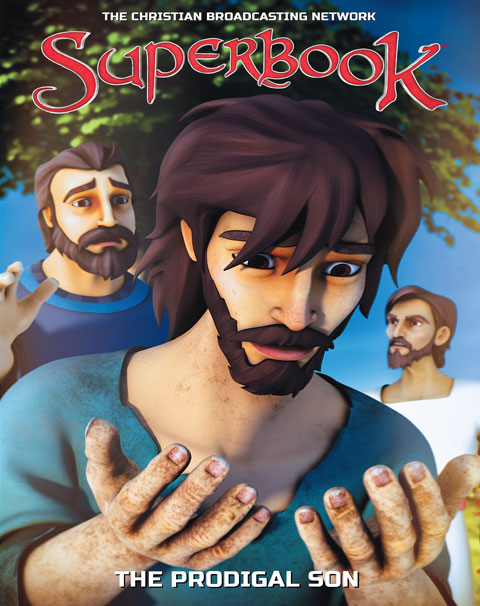37
Jesus His Commandment
- Knock, and it shall be opened unto you Matthew 7:7-8 ¶ Ask, and it shall be given you; seek, and ye shall find; knock, and it shall be opened unto you: For every one that asketh receiveth; and he that seeketh findeth; and to him that knocketh it shall be opened.
This Primary Bible reference is a unique Bible reference according to the words of Jesus, which best summarizes this step.
All Jesus His steps can be grouped into the Ten Commandments from the Old Testament (Exodus 20).

Direct Bible References
Extra direct Bible references which expands or explain the same step.
- Psalms 4:4 Stand in awe, and sin not: commune with your own heart upon your bed, and be still. Selah. (Author: 'David')
- John 6:37 All that the Father giveth me shall come to me; and him that cometh to me I will in no wise cast out. (Author: 'Jesus')
- James 4:8 Draw nigh to God, and he will draw nigh to you. Cleanse your hands, ye sinners; and purify your hearts, ye double minded. (Author: 'James')
- Revelation 3:20 Behold, I stand at the door, and knock: if any man hear my voice, and open the door, I will come in to him, and will sup with him, and he with me. (Author: 'Jesus')
Indirect Bible References
Extra, more indirect Bible references, relating to the same step.
- 2 Chronicles 7:13-15 If I shut up heaven that there be no rain, or if I command the locusts to devour the land, or if I send pestilence among my people; If my people, which are called by my name, shall humble themselves, and pray, and seek my face, and turn from their wicked ways; then will I hear from heaven, and will forgive their sin, and will heal their land. Now mine eyes shall be open, and mine ears attent unto the prayer that is made in this place. (Author: 'HEERE')
Example Bible References
In these Bible references you will find examples and testimonies how this step was being executed.
Please click on the Bible Reference to show its corresponding text.
- 2 Chronicles 33:12-13
And when he was in affliction, he besought the LORD his God, and humbled himself greatly before the God of his fathers, And prayed unto him: and he was intreated of him, and heard his supplication, and brought him again to Jerusalem into his kingdom. Then Manasseh knew that the LORD he was God. (Author: 'Manasseh') - Acts 10:30-31
And Cornelius said, Four days ago I was fasting until this hour; and at the ninth hour I prayed in my house, and, behold, a man stood before me in bright clothing, And said, Cornelius, thy prayer is heard, and thine alms are had in remembrance in the sight of God. (Author: 'Cornelius')
Study Bible References
Extra Bible references (most often larger parts of Bible books) which are good for extra study on this step:
Please click on the Bible Reference to show its corresponding text.
- Luke 11:5-13
And he said unto them, Which of you shall have a friend, and shall go unto him at midnight, and say unto him, Friend, lend me three loaves; For a friend of mine in his journey is come to me, and I have nothing to set before him? And he from within shall answer and say, Trouble me not: the door is now shut, and my children are with me in bed; I cannot rise and give thee. I say unto you, Though he will not rise and give him, because he is his friend, yet because of his importunity he will rise and give him as many as he needeth. And I say unto you, Ask, and it shall be given you; seek, and ye shall find; knock, and it shall be opened unto you. For every one that asketh receiveth; and he that seeketh findeth; and to him that knocketh it shall be opened. If a son shall ask bread of any of you that is a father, will he give him a stone? or if he ask a fish, will he for a fish give him a serpent? Or if he shall ask an egg, will he offer him a scorpion? If ye then, being evil, know how to give good gifts unto your children: how much more shall your heavenly Father give the Holy Spirit to them that ask him? (Author: 'Jesus') - John 10:1-18
Verily, verily, I say unto you, He that entereth not by the door into the sheepfold, but climbeth up some other way, the same is a thief and a robber. But he that entereth in by the door is the shepherd of the sheep. To him the porter openeth; and the sheep hear his voice: and he calleth his own sheep by name, and leadeth them out. And when he putteth forth his own sheep, he goeth before them, and the sheep follow him: for they know his voice. And a stranger will they not follow, but will flee from him: for they know not the voice of strangers. This parable spake Jesus unto them: but they understood not what things they were which he spake unto them. Then said Jesus unto them again, Verily, verily, I say unto you, I am the door of the sheep. All that ever came before me are thieves and robbers: but the sheep did not hear them. I am the door: by me if any man enter in, he shall be saved, and shall go in and out, and find pasture. The thief cometh not, but for to steal, and to kill, and to destroy: I am come that they might have life, and that they might have it more abundantly. I am the good shepherd: the good shepherd giveth his life for the sheep. But he that is an hireling, and not the shepherd, whose own the sheep are not, seeth the wolf coming, and leaveth the sheep, and fleeth: and the wolf catcheth them, and scattereth the sheep. The hireling fleeth, because he is an hireling, and careth not for the sheep. I am the good shepherd, and know my sheep, and am known of mine. As the Father knoweth me, even so know I the Father: and I lay down my life for the sheep. And other sheep I have, which are not of this fold: them also I must bring, and they shall hear my voice; and there shall be one fold, and one shepherd. Therefore doth my Father love me, because I lay down my life, that I might take it again. No man taketh it from me, but I lay it down of myself. I have power to lay it down, and I have power to take it again. This commandment have I received of my Father. (Author: 'Jesus')
Legend
Bible verses copyright: PUBLIC DOMAIN except in the United Kingdom, where a Crown Copyright applies to printing the KJV. See http://www.cambridge.org/about-us/who-we-are/queens-printers-patent
Click here to see the explanation of the different symbols, Author, OT Law etc.
- A related Bible reference to the step which is negative, something you should not do
- A related Bible reference to the step which is both positive and negative
- A related Bible reference to the step which is positive, something you should do or learn from
- A related Bible reference to the step which is not yet determined positive or negative
- Author: Indicates the known author from this Bible reference
- OT Law nr: Jewish tradition teached that there are 613 commandments or mitzvot in the Torah. We list the Number, based on a chronological order (Genesis, Exodus, Leviticus, Numeri, Deuteronomium).
- Rambam Title: This is the commandment, as an interpretation of Rambam (commonly known as Maimonides)
- Rambam Coding: The coding refers to the commandments layout of Rambam. Rabbi Chafetz Chayim wrote a book with all the commandments which can still be observed today. The book is called 'The Concise Book of Mitzvoth'
- CCA means a positive mitzwe (which can now also be carried out outside of Israel).
- CCN is the negative mitzwe (which can now also be carried out outside of Israel).
- CCI means that this mitzvah can only be performed in the State of Israel.
Who came up with this "613 Mitzvot"?
Rabbi Moshe ben Maimon, His full name was Rabbi Moses Ben Maimon. His name formed the acronym as "The Rambam" was born on the 14th of Nisan 4895 (30th March 1135) and he died on the 20th of Tevet of 4965 (Dec. 13 1204). The Rambam was one of the most saught after individuals of his time. Not only as a Halachic authority, but also within the secular world of kings and sultans, for his vast knowledge of secular medecines was outstanding. When writting the Mishna Torah, Ramban reviewed the Torah's Mitzvot, and he itemized them. He seperated the positive and negative mitzvot, listed them, all 613, and discussed them.
Drawings

Artist: Jenske Visser

Questions
Share your hearts together by discussing the following questions:
- Is there anything you don't understand within this step?
- Wat appeals to you about all Bible references and resources?
- How do you apply this step in your life or do you experience any boundaries?
Resource Language Settings
Below you will find all kinds of related resources to this step, to help you grow. Resources can be Sermons, Testimonies, Movies, Shortmovies, Songs, Blogs or Books. You can select multiple languages if you like to see those resources in more languages.Do you know more good resources in your language which can be added to this list? Please contact us so we can add it (or register and you can add it yourself!

Superbook

Justin gets in trouble with his father. He hides. Chris begins to wonder if what Justin did can be forgiven. Superbook sends Joy, Chris, and Gizmo to a time when Jesus tells stories. One story shows us that no matter what we do, God will always accept us back into His family with open arms when we say we are sorry.
Watch now on: Superbook

Short Movies
Moving Works - Open the door
We all suffer at the hands of other people. In Junko’s case, she was abused as a child and found herself isolated and in deep sorrow. Then, a gradual feeling of love grew in her heart and opened the door to a life that she never knew existed.
Keith Green - The prodigal son

Movies
Who am I?
Pastor Joe, is a young family man who leads a church in an active city where he reaches out to the poor and destitute in any way he can. One day, a woman named Tasha comes to his church seeking for help. Pastor Joe sits down with her and she shares an intense life story. She shares how she was born, how she was set free from a world of drugs, racism, theft, and human trafficking. Her story becomes increasingly complex as people from her past come in contact with Pastor Joe with their own life struggles of suicide, teen pregnancy, and abortion. As their stories tie together it brings hope, redemption, and salvation to the forefront and gives us a picture of what it means to experience the transformation of God, going from darkness to light, and to continue on the narrow path each and every day